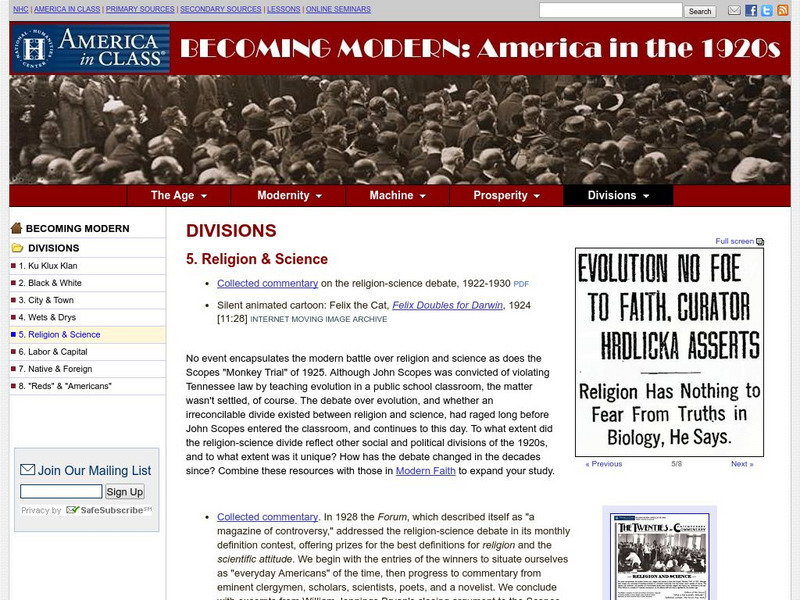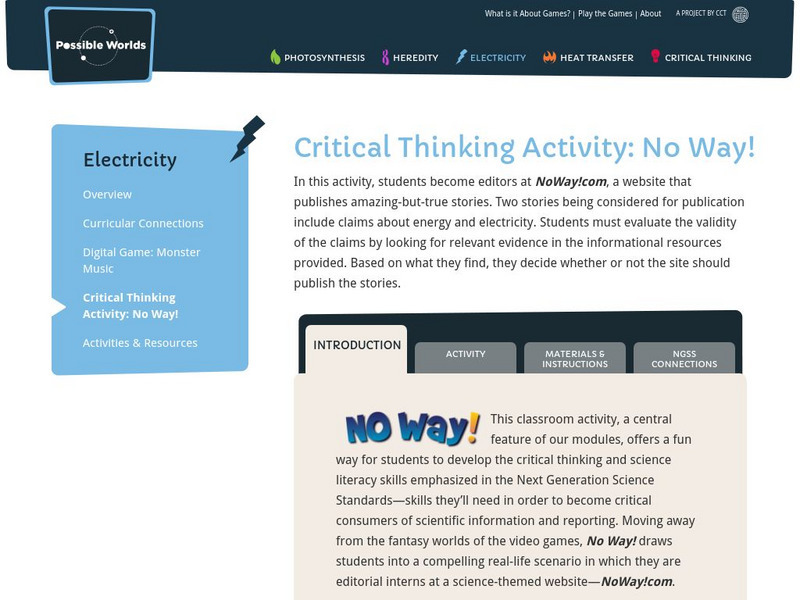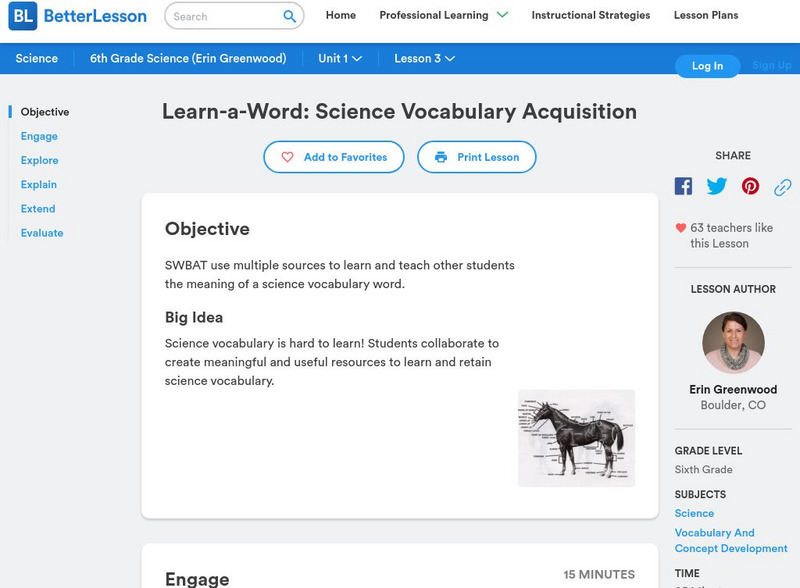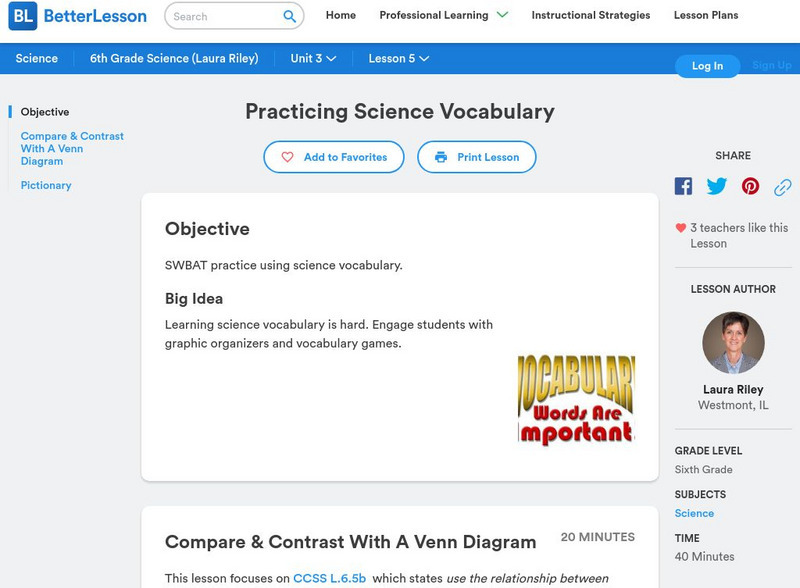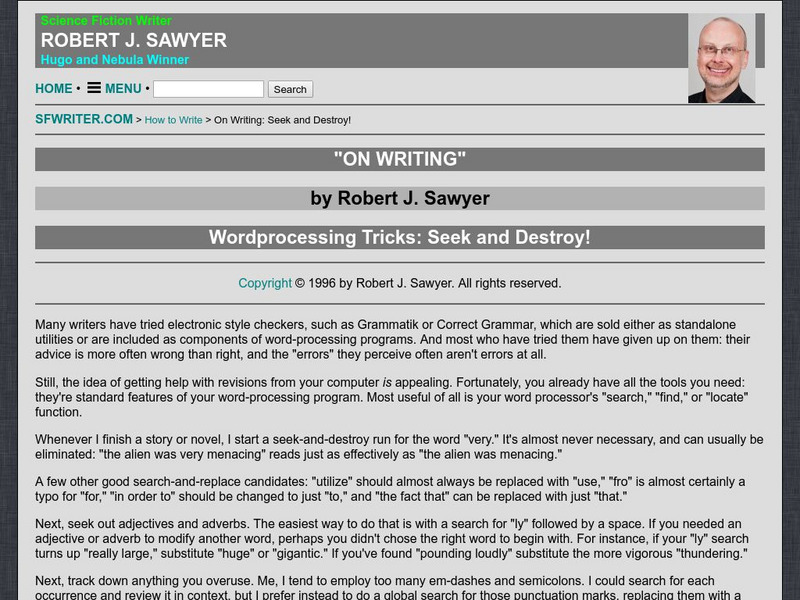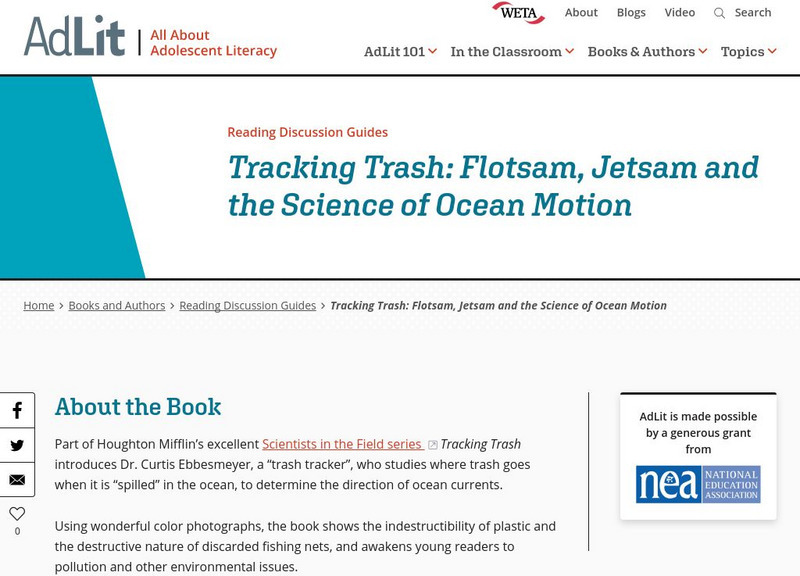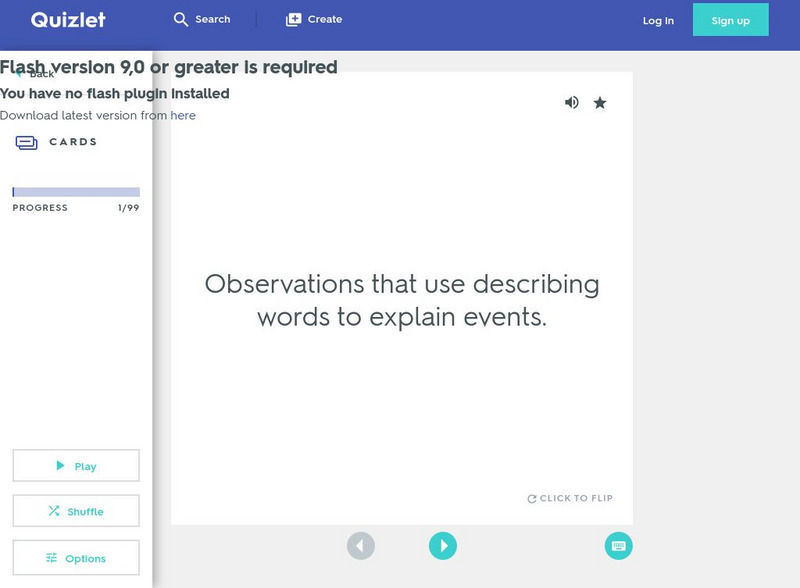Curated OER
The Civil War in Historical Fiction and Historical Accounts
Eighth graders examine life during the Civil War through various readings. They compare and contrast a novel they read in class to one they chose on the subject. They work together as a class to produce a newspaper displaying the...
Curated OER
Where Have All the Endangered Gone?
Students explore animals that are endangered. They choose an endangered animal that they would like to keep from becoming extinct. Students create a persuasive presentation to persuade someone to understand why they feel keeping their...
Curated OER
Charlotte's Web
Students examine the story, "Charlotte's Web" in the nine lessons of this unit. As the students progress through the book, they will explore the story plot, setting, character, and the value of friendship.
Curated OER
Global Studies Religion Fair
Students review the major religions of the world. Using the internet, they research the impact of religions and the development of the area in which they originated. They work together to create a museum display and brochure showing...
Curated OER
Helping Each Other, Near and Far
First graders examine their knowledge of the world as a larger place than just their immediate environment. They examine how people in Africa are fighting malaria and other issues. During the lesson they listen to a story about the use...
Other
Form Swift: Common Core Lesson Plans
Three, customizable Common Core lesson plan templates educators can create and fill out for math, science, and language arts.
Buck Institute
Pbl Works: Pbl, Common Core and Next Gen Standards
[Free Registration/Login Required] This two-page article summarizes the alignment of PBL with Common Core standards for ELA and math, plus the Next Generation Science Standards. It is an excerpt from the BIE book, PBL for 21st Century...
National Humanities Center
National Humanities Center: America in Class: America in the 1920s: Religion & Science
The National Humanities Center presents collections of primary resources compatible with the Common Core State Standards - historical documents, literary texts, and works of art - thematically organized with notes and discussion...
Student Achievement Partners
Achieve the Core: Introduction to Literacy Shifts in Content Areas
This 1-2 hour module provides an introduction to the key shifts required by the CCSS for Literacy in the content areas: history / social studies, science, and technical subjects.
National Science Teachers Association
Nsta: Science & Engineering Practices: Obtaining, Evaluating, Communication
This site from NSTA includes a progression of the Science and Engineering Practice for obtaining, evaluating, and communicating information. In addition, thereare performance expectations that make use science and engineering practices.
Other
Ctr for Assessment: Hess' Cognitive Rigor Matrix & Examples Math/science [Pdf]
Use this convenient table to compare Webb's Depth of Knowledge levels with Bloom's Cognitive Process Dimensions for Math and Science.
Association for Supervision and Curriculum Development (ASCD)
Educational Leadership: Art and Science of Teaching /Cognitive Verbs and Cc
The Common Core State Standards (CCSS) present a new mandate and challenge for K-12 educators-teaching and reinforcing cognitive verbs. These verbs, referred to as academic vocabulary, signal the type of mental operations that students...
Education Development Center
Center for Children and Technology: No Way: Electricity
Moving away from the fantasy worlds of video games, No Way draws young scholars into a compelling real-life scenario in which they are editorial interns at a science-themed website. This classroom activity on electricity offers a fun way...
Texas Education Agency
Texas Gateway: Formal Writing Across the Content Areas
This resource explores instructional practices for incorporating formal writing into English language arts, mathematics, science, and social studies instruction. CCSS.ELA-Literacy.WHST.6-8.1.d
Better Lesson
Better Lesson: Learn a Word: Science Vocabulary Acquisition
In this activity, young scholars use multiple sources to learn the meanings of science words, collaborating to create useful resources for learning and retaining science vocabulary.
Better Lesson
Better Lesson: Practicing Science Vocabulary
In this lesson plan, 6th graders play a compare and contrast game and Pictionary to practice their science vocabulary.
Other
Science Fiction Writer: Robert J. Sawyer: "On Writing": Word Processing Tricks
Science fiction writer Robert J. Sawyer shares his word processing tricks and tools for proofreading and editing a manuscript. CCSS.ELA-Literacy.WHST.6-8.6 Use technology to produce and publish writing
PBS
Nova Online: How Many Pearls? A Weight & Volume Game
This interactive game has students apply skills in estimation, measurement, and basic addition using pearls. Students are asked to estimate the number of pearls in a treasure chest by making predictions and using number sense. The skills...
Thinkport Education
Thinkport: Citing Textual Evidence: Changing Oceans
Learn how to cite evidence to support ideas presented in a science article about oceans.
Thinkport Education
Thinkport: Translating Qualitative & Quantitative Details: Climate Change
In this science-themed literacy lesson, students read for and differentiate between qualitative and quantitative information.
Thinkport Education
Thinkport: Using Multiple Sources: Sea Turtle Populations
In this science-themed literacy lesson, students learn how to identify the central idea and key details in an article about sea turtles.
Thinkport Education
Thinkport: Translating Qualitative & Quantitative Details a New Galaxy
In this science-themed literacy lesson, students learn how to read for and differentiate between qualitative and quantitative information.
AdLit
Ad lit.org: Guide: Tracking Trash: Flotsam, Jetsam and the Science of Ocean Motion
Part of Houghton Mifflin's excellent Scientists in the Field series Tracking Trash introduces Dr. Curtis Ebbesmeyer, a "trash tracker", who studies where trash goes when it is "spilled" in the ocean, to determine the direction of ocean...
Quizlet
Quizlet: 7th Grade: Science Vocabulary: Flashcards
This set of interactive flashcards focuses on science vocabulary including 99 science terms and their definitions.







